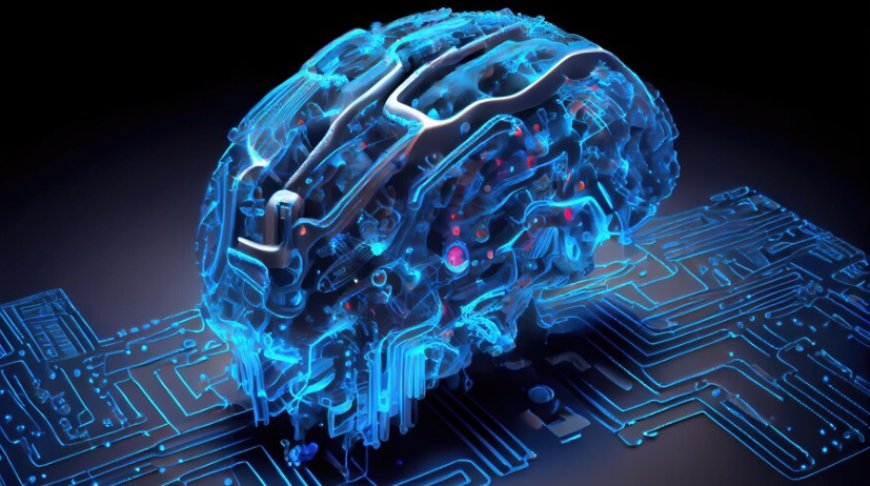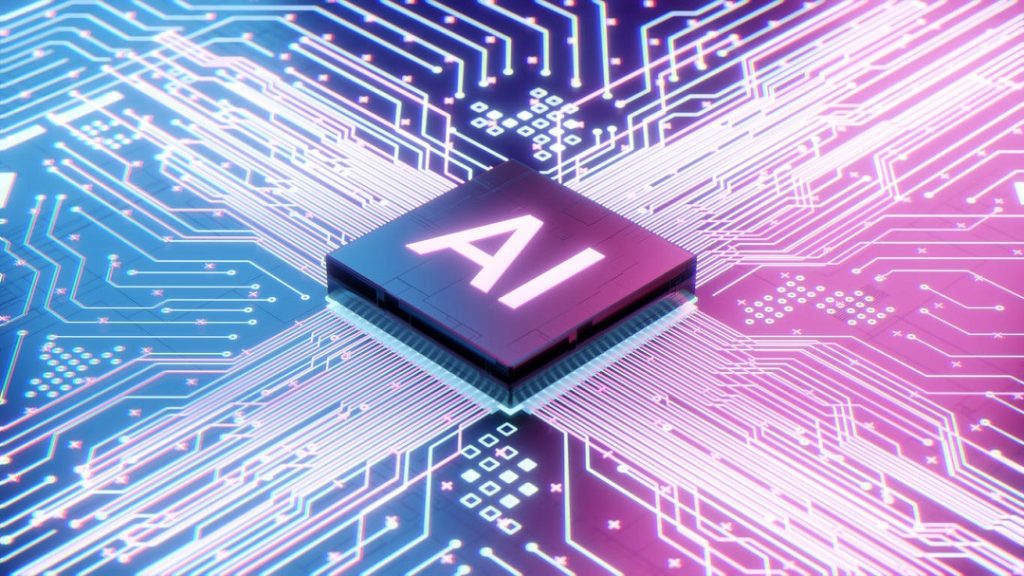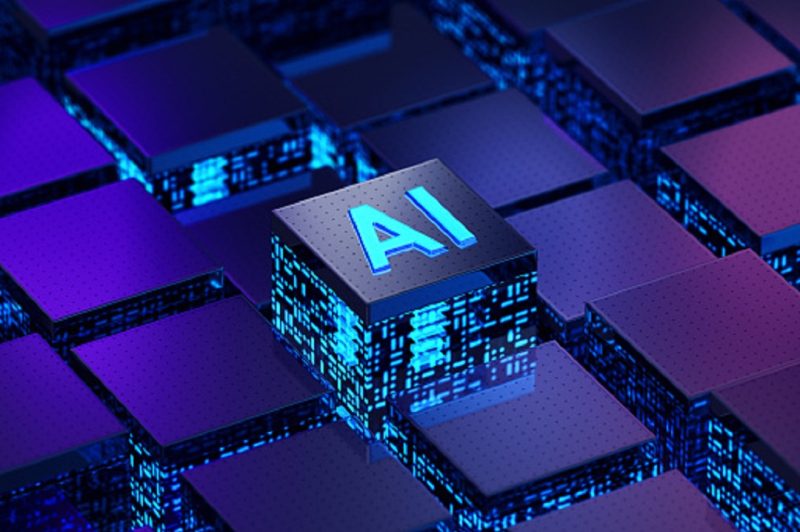Artificial Intelligence (AI) is an original idea that is converting some businesses, including the labor market. Generative artificial intelligence (GAI) is increasingly being used across many industries to usher in productivity gains and support decision-making. It’s also freeing people to achieve new levels of creativity and innovation. Professionals with understanding of and knowledge in using AI technology are always needed due to business enhancements. You might not even realize it but you may already be using some form of generative AI in your day-to-day work. While it’s not perfect, it can take some of the monotony out of certain aspects of your job, freeing up more time for creative and strategic thinking. Let’s start with the obvious: AI technology is changing the world of work faster than anyone anticipated. From predictive analytics and automation to content generation, companies across every industry are rapidly integrating AI into their operations and seeking employees who can understand and leverage it effectively. An Artificial Intelligence program can assist you in gaining these important skills.
How AI Will Impact the Future
Innovations in the field of artificial intelligence continue to shape the future of humanity across nearly every industry. AI is already the main driver of emerging technologies like big data, robotics and IoT, and generative AI has further expanded the possibilities and popularity of AI. Other questions to the experts in this canvassing invited their views on the hopeful things that will occur in the next decade and for examples of specific applications that might emerge. What will human-technology co-evolution look like by 2030? Participants in this canvassing expect the rate of change to fall in a range anywhere from incremental to extremely impactful. Artificial intelligence (AI) includes a wide range of technologies, including machine learning (ML), computer vision, robotics, and natural language processing (NLP). These skills are dynamic mutinies crosswise frequent businesses, with business, healthcare, banking, and retail. To start a career in this exciting field, you must know the essentials of artificial intelligence and its requests. With our Artificial Intelligence program, you will learn these core models.
Why AI Expertise Are Significant
Artificial Intelligence enhances the speed, precision and effectiveness of human efforts. In financial institutions, AI techniques can be used to identify which transactions are likely to be fraudulent, adopt fast and accurate credit scoring, as well as automate manually intense data management tasks.
- High Demand for AI Experts: The demand for AI skills and subjects may outdo the probable solid job growth in computer and info technology careers.
- Competitive Salary: The salary range differs established on experience, location, and job role, with demand for AI experts growing worldwide.
- Numerous Profession Pathways: These paths offer various chances for career growth and specialty in many industries. such as researcher in artificial intelligence, machine learning engineer, data scientist, and more.
- Impactful Work: AI professionals have the chance to work on impactful projects that transmute businesses and improve lives, dynamic innovation and solving complex problems.

AI Expertise to Learn in an Artificial Intelligence Program
Languages for Programming
Artificial Intelligence career you’re looking to pursue developing a strong knowledge of programming languages that are most normally operated in AI are as follows:·
- Python: Best commonly used language in AI, rare libraries like TensorFlow, Keras, and PyTorch.
- R: Standard for arithmetical computing and machine learning, used in data analysis and visualization.
- Java: Used in AI and ML applications, specifically for Android app development.·
- C++ High-performance language for structure AI and ML models, used in computer vision and natural language processing.
Statistics and Mathematics
These arithmetical and mathematical concepts form the basis of AI and machine learning, qualifying the development of analytical models, algorithms, and data analysis techniques. Important things to consider are:
- Linear Algebra: Deep learning and neural networks require a mastery of linear algebra.·
- Calculus: Used to define adjustments to optimization methods and model restrictions.
- Statistics and possibility: are central for analyzing data, assessing models, and understanding prediction doubt.
Machine Learning (ML)
Machine learning is the main source of artificial intelligence. That enables machines to learn from data, make estimates, and progress their concert over time. Key concepts to apprehend are as follows:
- Supervised machine learning: This type of ML involves supervision, where machines are trained on labeled datasets and enabled to predict outputs based on the provided training.
- Unsupervised machine learning: Unsupervised learning refers to a learning technique that’s devoid of supervision.
- Semi-supervised learning: Semi-supervised learning comprises characteristics of both supervised and unsupervised machine learning.
- Reinforcement learning: Reinforcement learning is a feedback-based process. Here, the AI component automatically takes stock of its surroundings by the hit & trial method, takes action, learns from experiences, and improves performance.
Processing and Handling of Data
Processing and handling of data is a essential feature of AI and machine learning, involving the following key steps:
- Data cleaning: is the method of removing anomalies, changeable data, and missing values to guarantee data quality.·
- Data Transforming: unrefined data into an analysis-ready format is known as data renovation.
- Information Visualization: The training of awarding designs and visions in data using tools like Matplotlib, Seaborn, and Tableau is known as data visualization.
NLP, or natural language processing
NLP studies the connection between computers and human language. Important things to study are:
- Text Preprocessing: Lemmatization, stemming, and tokenization are examples of text preprocessing.
- Language Models: Understanding Modernizer architectures, GPT-3, BERT, and other models.
- Sentimentality analysis: is the study of feelings and viewpoints in written data.
- Speech recognition: Text-to-speech conversion is known as speech recognition.
Image Processing
Computer vision is the process of giving machines the skill to read and understand visual information. Key capabilities include:
- Image processing: is the term used to define methods for improving and correcting images.
- Discovery and Recognition of Things: Objects in an image can be establish and recognized by engaging methods such as YOLO and RCNN.
- Image Division: An image may be divided into sections to assist analysis.
- Deep Learning for Idea: Convolutional neural networks (CNNs) are used in deep learning for ideas to evaluate and categorize images.
AI Libraries and Frameworks
Considerate AI frameworks and libraries assist the progress and use of AI representations more rapidly. Key bases of info to learn round are:
- Tensor Flow: One popular open-source deep learning and machine learning library is Tensor Flow.
- Keras: Tensor Flow can be used with Keras, a high-level neural network API with a Python basis.
- PyTorch: PyTorch is an open-source machine-learning library made on the Torch framework.
- Scikit-learn: is a Python library for classic machine learning methods.
Tools Using Big Data
Working with huge datasets in AI normally requires the use of big data knowledge. Central resources to become conversant with are as follows:
- Hadoop: A spread processing and storage stage for large-scale datasets.
- Spark: Uniting analytics, Spark is a huge data processing machine.
- NoSQL databases: MongoDB and Cassandra are two examples of databases that manage formless data.
Cloud Computing
The substructure essential to create, train, and implement AI models is providing by cloud platforms. Important learning platforms contain of:
- AWS (Amazon Web Services): Machine learning facilities such as SageMaker.
- Google Cloud Platform (GCP): Model placement tools such as AI Stand are available on Google Cloud Platform (GCP).
- Microsoft Azure: Tools for evolving and applying AI solutions, such as Azure Machine Learning.
Soft Skills
Soft skills clamp like standing in an AI job as practical skills. Mid them are:
- Problem-Solving: The ability to hold and effectively resolve challenging issues.
- Critical thinking: is the process of evaluating data and coming to logical ends.
- Communication: Technical info must be interconnected to non-technical stakeholders in a clear and short method.
- Collaboration: Performance well in a group situation, normally with sides from different sections.

Structure Your AI Profession: A Step-by-Step Guide
Step 1: Find Your Objectives
First, choose what your career goals are. Do you have a desire to learn, make, or apply AI to a confident business? You can modify your way of learning by defining your goals.
Step 2: Gain Related Education
Think about going after a degree in data science, computer science, or a related pitch. Many colleges provide particular AI programs. Additionally, info can be increased through online certification programs and courses offered by sites
Step 3: Addition Hands-on Practice
Real-world involvement is central. Work on projects that use info and difficulties from the real world. Join in hackathons, challenges, and internships to put your skills to use and build your portfolio.
Step 4: Stay Informed with Industry Leanings
The field of AI is growing speedily. Keep yourself knowledgeable on the newest research, developments, and commercial leanings by reading blogs about artificial intelligence (AI), joining sessions, and winning with AI sets.
Step 5: Set up with Experts
Partnerships and job openings power result from interacting. Involve in online conversation boards, appear in AI congregations, and shape business relations on LinkedIn.
Step 6: Grow a Durable Portfolio
A durable portfolio sets your skills and activities. Include a choice of projects that establish your expertise in numerous AI fields, such as machine learning, computer vision, and natural language processing.
Step 7: Relate for Jobs and Internships
Apply for Engagement and Internships Make sure your resume and cover letter highlight your knowledge and ability in artificial intelligence, and apply right away for internships and services that match your interests and skill set.
Step 8: Nonstop Learn and Progress
AI is an area that needs continuing education. Lastly, improve your aptitudes by contributing in workshops, progressive courses, and technological trialing.
Conclusion
A job in artificial intelligence needs a mixture of hard and soft capacities, endless education, and applied experience. Focus on important AI abilities such as computer vision, NLP, and programming as well as data processing and machine learning. You’ll become a precious strength in the engagement market as a result. Last to learn and be interested, and grab the captivating forecasts accessible by AI. You can have a wealthy artificial intelligence job with promise and determination. These are vital skills that you can obtain with the assistance of an Artificial Intelligence program.

